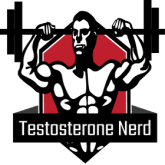Testosterone, a hormone that plays a crucial role in aggression and dominance, has also been linked to impulse control. Studies have found that an imbalance in testosterone levels can affect an individual’s ability to regulate their impulses and control impulsive behavior. For example, higher testosterone levels have been associated with increased impulsivity and risk-taking behaviors. On the other hand, low testosterone levels have been linked to lower impulse control and self-discipline. Achieving a natural balance of testosterone is essential for improving impulse control and enhancing self-discipline.
Key Takeaways:
- Testosterone levels impact impulse control and self-discipline.
- Higher testosterone levels can increase impulsivity and risk-taking.
- Lower testosterone levels are associated with better impulse control.
- Balancing testosterone is crucial for improving impulse control.
- Achieving hormonal balance through lifestyle choices can help regulate testosterone.
Research has shown that testosterone levels can influence an individual’s ability to control their impulses. Higher testosterone levels have been associated with increased aggression, impulsivity, and risk-taking behavior. Conversely, lower testosterone levels have been linked to decreased impulsivity and better self-control. Achieving a natural balance of testosterone through lifestyle choices, such as regular exercise, a healthy diet, stress management, and quality sleep, can help improve impulse control and enhance self-discipline. Additionally, hormone replacement therapy may be an option for individuals with clinically low testosterone levels.
Key Takeaways:
- Testosterone levels influence impulse control and self-control.
- Higher testosterone levels can lead to aggression and impulsivity.
- Lower testosterone levels are associated with improved impulse control.
- Lifestyle choices like exercise and a healthy diet can help balance testosterone.
- Hormone replacement therapy may be an option for low testosterone.
To achieve a healthy balance of testosterone and improve impulse control, there are several strategies that individuals can implement.
The Relationship Between Testosterone and Impulse Control
Research has shown that testosterone levels can have a significant impact on an individual’s ability to control their impulses and exhibit self-control. Higher levels of testosterone are associated with increased aggression, impulsivity, and risk-taking behavior, while lower levels are linked to decreased impulsivity and better self-control.
To improve impulse control and achieve a natural balance of testosterone, there are several strategies and techniques that individuals can employ:
- Regular Exercise: Engaging in physical activity, such as strength training and cardio exercises, can help optimize testosterone levels and promote overall hormonal health.
- Healthy Diet: Consuming a nutritious diet rich in fruits, vegetables, lean proteins, and healthy fats can support hormone balance and improve self-discipline.
- Stress Management: Chronic stress can negatively impact testosterone levels. Implementing stress management techniques, such as meditation, deep breathing exercises, and mindfulness, can help regulate hormones and promote impulse control.
- Quality Sleep: Getting enough sleep is crucial for maintaining optimal hormone balance. Poor sleep can disrupt testosterone levels and impair self-control. Implementing healthy sleep habits, such as sticking to a consistent sleep schedule and creating a relaxing bedtime routine, can improve impulse control.
In addition to these lifestyle choices, individuals with clinically low testosterone levels may benefit from hormone replacement therapy (HRT). HRT involves the use of prescribed medications or testosterone supplements to optimize hormone levels and improve impulse control.

Strategies for Balancing Testosterone and Improving Impulse Control
When it comes to achieving a healthy balance of testosterone and enhancing impulse control, there are various strategies that can be employed. Taking proactive steps can positively impact both hormonal balance and self-discipline.
1. Regular Exercise: Engaging in physical activity on a consistent basis can help regulate testosterone levels and promote better impulse control. Incorporating a combination of cardiovascular exercises, strength training, and high-intensity interval training (HIIT) can be particularly effective.
2. Balanced Diet: Proper nutrition plays a crucial role in hormone regulation. A diet rich in lean proteins, healthy fats, and a variety of fruits and vegetables can support testosterone balance and improve self-control. Avoiding excessive alcohol consumption and reducing sugar intake are also important factors to consider.
3. Stress Management: Chronic stress can disrupt hormonal balance, including testosterone levels, which can in turn impact impulse control. Incorporating stress-reducing techniques such as meditation, deep breathing exercises, and regular relaxation practices can help manage stress levels and improve impulse control.
4. Quality Sleep: Adequate sleep is essential for hormonal health and self-discipline. Aim for 7-9 hours of quality sleep each night to support testosterone balance and promote optimal impulse control. Establishing a consistent sleep routine and creating a peaceful sleep environment can greatly contribute to improved hormonal regulation and self-discipline.
By implementing these strategies, individuals can work towards achieving a harmonious balance of testosterone, promoting hormonal equilibrium, and enhancing impulse control. Remember, improving self-discipline is a gradual process that requires dedication and consistent effort.
Source Links
- https://www.ncbi.nlm.nih.gov/pmc/articles/PMC6502699/
- https://www.ncbi.nlm.nih.gov/pmc/articles/PMC8677662/
- https://www.nature.com/articles/s41598-017-05603-7
I've been fascinated by natural male hormone optimization since 2016. And ever since I've been going through boatloads of different meta-analyses and scientific data associated with increasing testosterone levels naturally. I hold a PhD degree in public health and have 10+ scientific publications on Google Scholar. Thus, in my collective work here you'll find helpful tricks, natural remedies, detailed product reviews (including stuff I've personally tried)... and more!


